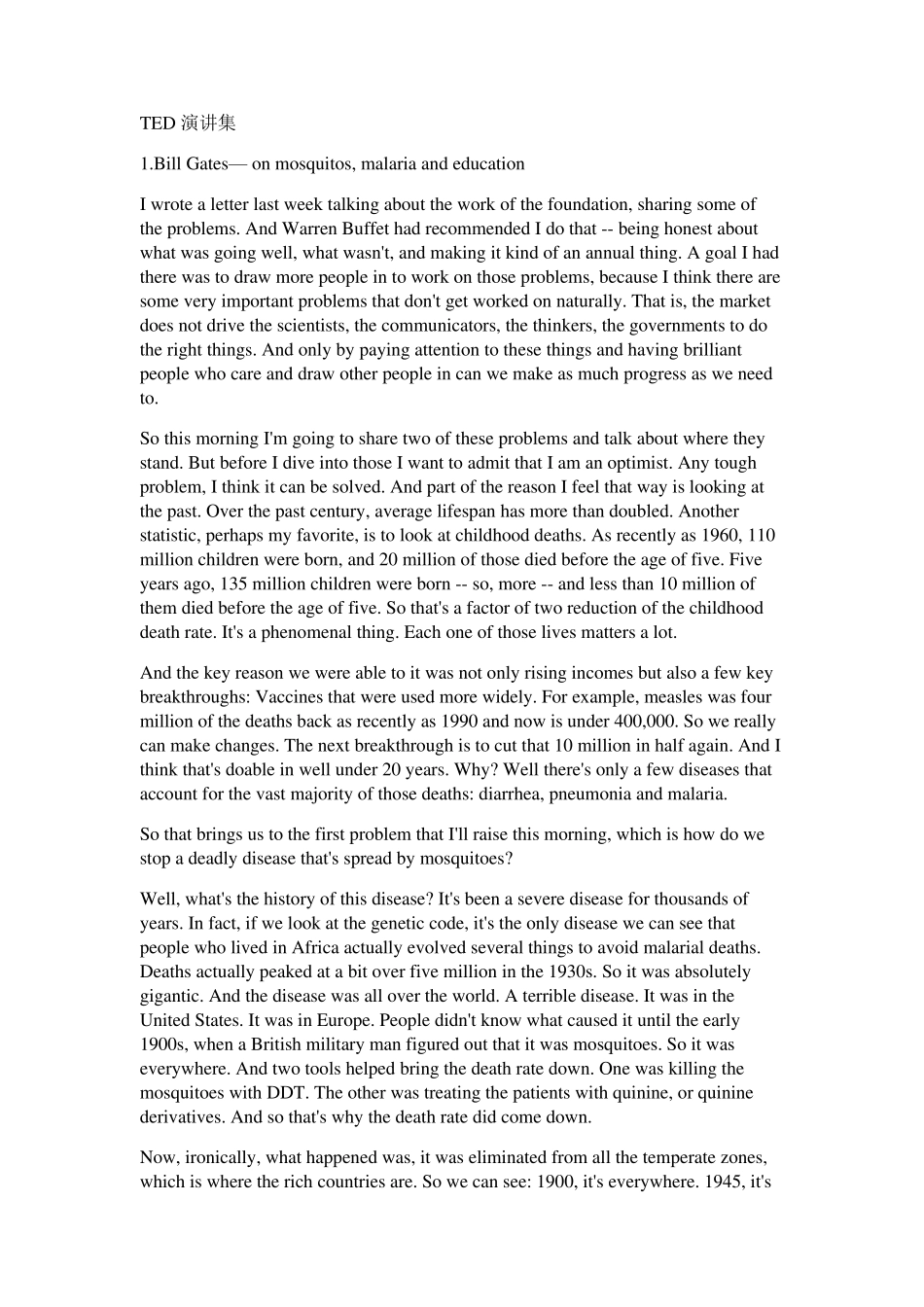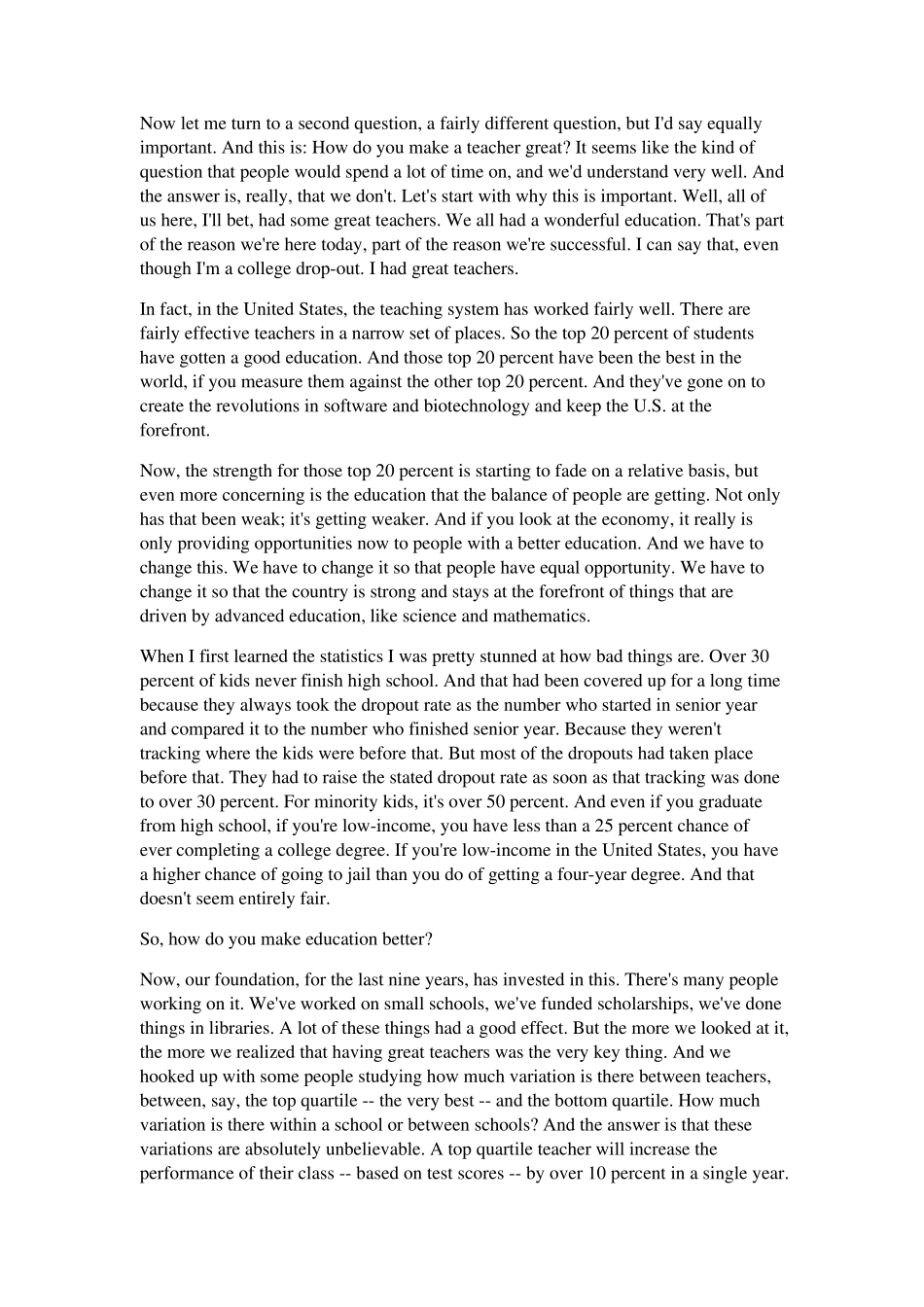TED 演讲集 1.Bill Gates— on mosquitos, malaria and education I wrote a letter last week talking about the work of the foundation, sharing some of the problems. And Warren Buffet had recommended I do that -- being honest about what was going well, what wasn't, and making it kind of an annual thing. A goal I had there was to draw more people in to work on those problems, because I think there are some very important problems that don't get worked on naturally. That is, the market does not drive the scientists, the communicators, the thinkers, the governments to do the right things. And only by paying attention to these things and having brilliant people who care and draw other people in can we make as much progress as we need to. So this morning I'm going to share two of these problems and talk about where they stand. But before I dive into those I want to admit that I am an optimist. Any tough problem, I think it can be solved. And part of the reason I feel that way is looking at the past. Over the past century, average lifespan has more than doubled. Another statistic, perhaps my favorite, is to look at childhood deaths. As recently as 1960, 110 million children were born, and 20 million of those died before the age of five. Five years ago, 135 million children were born -- so, more -- and less than 10 million of them died before the age of five. So that's a factor of two reduction of the childhood death rate. It's a phenomenal thing. Each one of those lives matters a lot. And the key reason we were able to it was not only rising incomes but also a few key breakthroughs: Vaccines that were used more widely. For example, measles was four million of the deat...


